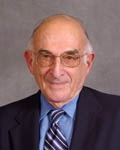Change is in the air in Northeast Asia. Over the past year or so, new leaders took over in China, Russia, Japan and in both South and North Korea.
Unprecedented change has unfolded in Southeast Asia as well, especially in Myanmar, formerly called Burma.
But do not get your hopes up that a succession in leadership in North Korea might result in the kind of sweeping reforms now taking place in Myanmar since elections in November 2010 transferred power for the first time in 20 years to a civilian government.
A senior U.S. policy expert on Southeast Asia visiting Seoul cautioned government officials, foreign envoys and policy experts against drawing too many parallels between changes taking place in Burma with the new leadership in North Korea.
Unprecedented change has unfolded in Southeast Asia as well, especially in Myanmar, formerly called Burma.
But do not get your hopes up that a succession in leadership in North Korea might result in the kind of sweeping reforms now taking place in Myanmar since elections in November 2010 transferred power for the first time in 20 years to a civilian government.
A senior U.S. policy expert on Southeast Asia visiting Seoul cautioned government officials, foreign envoys and policy experts against drawing too many parallels between changes taking place in Burma with the new leadership in North Korea.

“However much we may search, there is no algorithm to define the steps that might be taken to achieve the goals of political and economic reform in either Myanmar or North Korea,” Georgetown University professor David Steinberg said in a policy paper from which he based opening remarks at a day-long talk in Seoul, Tuesday.
Steinberg has written extensively on Myanmar and is widely regarded as a expert on the country and Southeast Asia in general.
Burma changed when civilian President Thein Sein assumed power from the military government after peaceful elections in November 2010, one of only two examples in East Asia ― Taipei is the other, of top-down democratization, Steinberg said in his opening remarks.
There were reasons for government officials and policy makers to connect the two countries.
North Korean agents used Myanmar in a botched assassination attempt against South Korean strongman Chun Doo-hwan in 1983. More recently, there were a slew of accusations that the two countries worked together to build underground facilitates in Myanmar’s new capital of Naypyitaw and that they cooperated on missile technology including a state visit to Pyongyang by a top Myanmarese military commander.
But officials in Seoul and Washington should not count on similar top-down changes taking place in Pyongyang, Steinberg said.
Not all tyrannies are alike
Grouping North Korea and Myanmar was begun by Condoleeza Rice, then U.S. Secretary of State designate, when she described the two Asian nations as “outposts of tyranny” during her Senate confirmation hearings in January 2005.
Her description was likened at the time to former U.S. President George Bush’s “axis of evil” speech in which he grouped together Iraq, Iran and North Korea, but she excluded Iraq and added Cuba, Belarus and Zimbabwe.
Although both countries are basically tyrannical, their tyrannies differ in terms of magnitude, said Steinberg, and that actually makes a crucial difference.
“I am wearing the Burmese colonial riflemen tie over the advice of my wife, because I thought it appropriate considering the theme of today’s meeting,” Steinberg said at the start of his speech.
His point was that not everyone in the military in Myanmar is bad and U.S. experts should not view the military monolithically.
“Analysts in the West suffer from a kind of myopia when it comes to the military in Burma,” he said.
“They were surprised when President Thein Sein initiated reforms in 2010, but they should have known that there were always people within the military who wanted change but could not do it because of the leader of the country up to 2010.
U.S. sanctions against Myanmar and North Korea are totally different as well. Under Bush and Clinton, U.S. sanctions were applied with the aim of regime change. In the case of North Korea, it is aimed at denuclearization, he said.
Sanctions against Myanmar were aimed at closing the country off and sanctions against North Korea are aimed at opening the country up.
Sanctions did not play a role in initiating sweeping reforms in the country, Steinberg, said.
For policy makers in Seoul and Washington and North Korea watchers everywhere, the question remains whether sanctions can work to pressure Pyongyang into giving up its expanding stockpiles of nuclear weapons.
By Philip Iglauer (ephilip2011@heraldcorp.com)
-
Articles by Korea Herald


![[Weekender] Geeks have never been so chic in Korea](http://res.heraldm.com/phpwas/restmb_idxmake.php?idx=644&simg=/content/image/2024/05/16/20240516050845_0.jpg&u=)


![[News Focus] Mystery deepens after hundreds of cat deaths in S. Korea](http://res.heraldm.com/phpwas/restmb_idxmake.php?idx=644&simg=/content/image/2024/05/17/20240517050800_0.jpg&u=)

![[KH Explains] Why Korea's so tough on short selling](http://res.heraldm.com/phpwas/restmb_idxmake.php?idx=644&simg=/content/image/2024/05/19/20240519050115_0.jpg&u=20240519162247)
![[Herald Interview] Byun Yo-han's 'unlikable' character is result of calculated acting](http://res.heraldm.com/phpwas/restmb_idxmake.php?idx=644&simg=/content/image/2024/05/16/20240516050855_0.jpg&u=)


![[Photo News] Seoul seeks 'best sleeper'](http://res.heraldm.com/phpwas/restmb_idxmake.php?idx=644&simg=/content/image/2024/05/18/20240518050098_0.jpg&u=)







